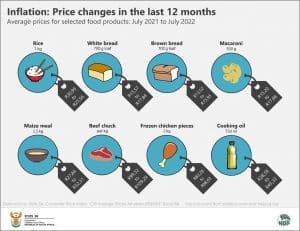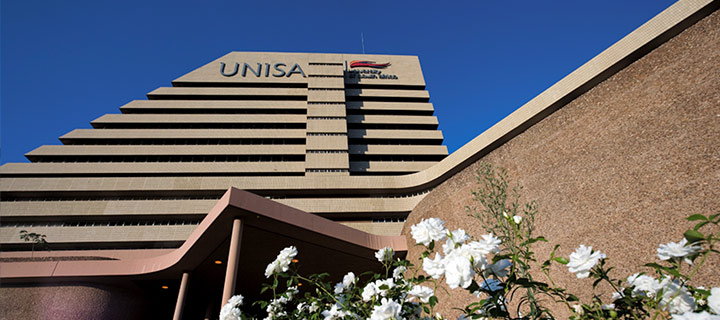Consumers around the country are feeling the pinch in their wallets as consumer inflation accelerated to a 13 year record high. This results in consumers needing to spend more on the same products which they may not be able to afford.

Earlier this week, Statistics South Africa (StatsSA) revealed that consumer price inflation reached a 13-year high by accelerating to 7,8% in July. It was also only the 4th time since 2008 where the Consumer Price Index (CPI) increased by 1,5% from the previous month.
CPI measures monthly changes in prices for a range of consumer products and the changes in the CPI indicate the rate of inflation. The CPI can also be used as a cost-of-living index.
The price of white and brown bread, macaroni, maize meal, beef chuck, frozen chicken pieces and cooking oil all increased over the last 12 months. The only product that consumers may be paying less for is rice.

StatsSA explained that South African consumers also had to contend with an average increase of 7,5% in electricity tariffs and the skyrocketing price of fuel.
“Transport costs were up by 4,8% between June and July, with fuel rising by 9,4%. Fuel is 56,2% more expensive than it was twelve months ago, with the price of a litre of inland 95-octane petrol rising from R17,39 in July 2021 to R26,74 in July 2022” explained the statistics agency.
Money Wit Financial Wellness’ Kristen Malan says one consequence of these increases will result in more consumers relying on credit facilities and borrowing money. This also limited the ability for consumers to save money.
They explained the higher inflation rate could also result in an increase to the interest rate. This increases the pressure on households when they do make use of credit facilities as they will have to pay higher interest rates when borrowing money.
“The sad reality is that when it comes to such high prices in these basic necessities that everyone needs, you need to have a roof over your head and food on the table, and in order to afford these necessities they are going to need to cut back on other things that are also necessary [like] life insurance policies and savings” explained Malan.
Malan added that there are many financial resources that can be accessed by individuals to navigate the current financial climate in the country.
Trade Unions in South Africa also embarked on a national shutdown this week to protest what they called an economic crisis in the country. They are calling on the government to address the challenges faced by citizens.


